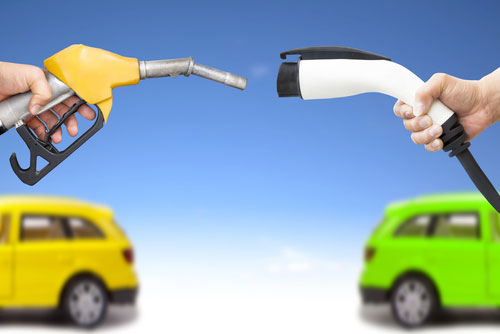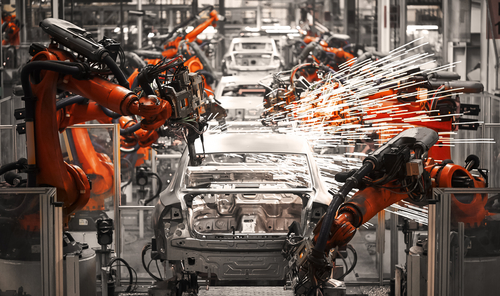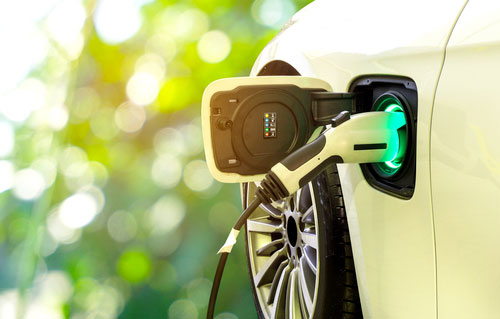Are electric cars (EC) really greener and eco-friendly? They seem to be a great solution to fight climate change and they are even said to have zero emissions. But are they worth it? Is it true that they are harmless to the planet?
Climate change is, quite simply, an existential threat for most life on the planet – including, and specially, the life of humankind
Said António Guterres, the Secretary-General the United Nations, in May 2018. But he’s not standing alone. From the IPCC to NASA, WWF or CDP, all these important entities agree on this phenomena’s spin-off and are committed to fighting it.
From the loss of sea ice and the increase in sea levels to the occurrence of extreme events such as hurricanes, droughts or intensive heat waves, it’s hard to deny the dimension of what we are fighting here. And there’s more to come if we reach the temperature increase of 2° Celsius.
In an attempt to minimize these consequences, scientists have been looking into what may be the main causes of climate change. They found out that greenhouse gases (GHG) like carbon dioxide, methane or nitrous oxide, and aerosols are changing the atmosphere and leaving the planet more exposed.
The Intergovernmental Panel on Climate Change (IPCC) pointed out that of the 49 Gt Co2 eq released into the atmosphere in 2010, 14% was released by transportation vehicles. And despite being already a big number, this doesn’t even consider the Co2 impact of complementary activities such as manufacturing vehicles or getting road surfaces worn.
As cars make up 72% of the Co2 emissions in this sector (followed by planes, with 10%), the market of electric cars has been growing and seems to be a good solution to fight climate change. But is it true that EVs have zero emissions?
Are Electric Greener Than Fossil Fuel Powered Cars?

The fundamental difference between conventional, thermal cars and electric cars has to do with the process of transforming the potential (stored) energy into kinetic (movement) energy. In thermal cars, this energy is stored in a chemical form and is released through a chemical reaction inside the engine.
On the other hand, despite also having chemically stored energy, electric cars release it electrochemically without any kind of combustion, thanks to lithium-ion batteries. This means that there is no fuel being burned and therefore no air pollution through CO2 happening while driving. They are also more efficient than fossil cars. So is this a clear win for the electric movement? Are electric cars and vehicles greener?
Not necessarily. Or better said, not always. If the source of energy to power these cars doesn’t come from solar panels, wind turbines or even nuclear or hydroelectric, their CO2 emissions will be much higher. For instance, if the electricity used to charge cars comes from the burning of fossil fuels, it doesn’t matter if the EC are not polluting while being driven, as this pollution was already released in some distant power plant.
This means that if you’re driving an electric car in the US, where fossil fuels accounted 62,7% of the country’s energy production in 2017, you’ll probably release more CO2 into the atmosphere than if you’re driving it in Iceland, that runs almost entirely on hydro, geothermal and solar energy.
As for the UE28, forecasts are encouraging, being expected that the EU grid mix will come down from 300gCO2 eq/km in 2015 to 200gCO2 eq/km in 2030, and 80gCO2 eq/km in 2050. But let’s assume a scenario where cars are 100% powered with renewable or clean energy. Could we then say electric cars have zero emissions?
Does The Manufacturing Of Electric Cars Have Zero Emissions? How Eco-Friendly Is The Process?

The cycle of making a car starts with raw materials being extracted, refined, transported and manufactured into several components that will be assembled to produce the car itself. This process is very much the same in both conventional and electric cars. Nevertheless, at the end of the manufacturing process, electric cars are the ones generating more carbon emissions, according to the Union of Concerned Scientists.
Why is this? Because electric cars store energy in large batteries (the larger they are, the bigger their range is) that have high environmental costs. This happens because these batteries are made of rare earth elements (REE) like lithium, nickel, cobalt or graphite that only exist beneath the surface of the Earth and therefore depend on mining activities with very polluting processes. That’s why asking whether electric cars are greener or not does come with an easy answer.
For instance, to produce 1 ton of REE, 75 tons of acid waste (that isn’t always handled in the right way) and 1 tone of radioactive residues are also made, according to the Chinese Society of Rare Earths. In spite of these pollution issues, research tells us not to worry about the availability of these rare earth elements and when it comes to lithium, there is data estimating enough worldwide reserves for the next 185 years, even if the EC market triples, according to the Deutsche Bank. As for cobalt, graphite, and nickel, they also seem to be in a comfortable situation, since the demand for the years to come is expected to stay far away from the reserves Earth has to offer. Although it looks like everything will work out just fine, let’s not forget the negative environmental impact of extracting REEs.
Apart from the weight of the REE, the energy used to produce the batteries themselves is also responsible for nearly half of their environmental impact since most of this energy doesn’t come from low carbon sources. Nevertheless, forecasts show that the electricity generation is improving and there are more renewable sources entering the grid, which would help decrease the ecological footprint of building up these batteries.
On the other hand, developing renewable energy systems has its impact as well, again using energy and REE. In the end, we should be reasonable about this and despite their initial footprint, the impact of lithium-ion batteries, when compared to conventional cars, is offset within 6 to 16 months of average driving (using clean energy) in the US or 2 years in the EU. From this moment on, EC keep being a better eco-alternative to conventional cars until their battery gets to the end of its life cycle. But what happens next? How are lithium-ion batteries being handled when they’re no longer useful for electric cars?
Where Do Electric Cars’ Batteries Go To? Are They Recycled In An Eco-Friendly Way?
In the conventional car industry, according to a study from the international council of clean transportation (ICCT), 99% of lead-acid batteries (the ones running in fossil fuel powered cars) are recycled in the US. This is not the case for the lithium-ion batteries that have a very specific mix of chemical components and little quantities of lithium, which doesn’t make them an appealing market opportunity. For instance, in the EU market, in 2011, only 5% of lithium was being collected and the rest was either incinerated or dumped in landfills (this specifically doesn’t make electric cars greener at all), as it was not justified by price or regulations to recover it by hydrometallurgical processes.
Nevertheless, the more batteries that are out there, since the electric cars market is growing, the more interesting it gets to try to figure out how to recycle them or recapture rare earth elements. So the chances are that a strong recycling industry for these batteries will keep developing and allowing electric cars to become greener.
Meanwhile, another solution might have to do with reusing these batteries and giving them a second life since they are able to support the electric grid of buildings and to store energy from wind or solar electricity sources. This would also help offset the environmental impacts of making the batteries in the first place since they are amortized over a longer period of time.
In The End, Are Electric Cars Really Eco-Friendly And Zero Emissions?

No, electric cars they are not zero emissions vehicles. We have seen that although they do not emit CO2 while being driven, they might do it in 3 other stages: during manufacturing, energy production and at the end of their life cycle. In the first case, the need for mining activities to extract the rare earth metals that are used in batteries is very energy consuming and polluting.
As for the energy production, if the car is being powered with energy from burning fossil fuels, it is still releasing CO2 in the atmosphere, not from the tailpipe but from some distant power plant. When it comes to batteries being recycled, it is still an expensive and ongoing process and most batteries are not being recycled yet.
In spite of this, solutions to make electric cars greener and more eco-friendly and sustainable are being developed. And although there is room for improvement, we have also seen that electric cars, as they are today, are already, in general, more eco-friendly along their lifecycle than the conventional fossil fuel cars, especially if they are powered with clean electricity. Some countries are already realizing this and that’s why they are fostering the growth of the electric cars market, mostly by giving fiscal benefits that make the cars economically more competitive. In fact, countries like Norway, Germany or Costa Rica are simultaneously increasing their bet on renewable energies and setting deadlines for the end of conventional cars in their roads.
But in the end, are electric vehicles the solution for our sustainability problem on mobility? We are running to avoid the 2° Celsius temperature increase and prevent the bad consequences of climate change from happening. But is preventing the bad the same as planning for the best?
We have REE for some time but do we truly have enough for the long run? UN forecasts are that 68% of the world population will live in urban areas in 2050, so issues like traffic, parking, and high consumption rates will need to be managed as well.
The truth is that public transportation is a better option than using individual vehicles if we want to lower our carbon footprint, so shouldn’t we be more worried about reinventing it? At the same time, some scientists say that the sharing economy of cars, or even motorbikes or bicycles, will be the next stage in the evolution of mobility, with new business models already being developed. Let’s embrace the change?


